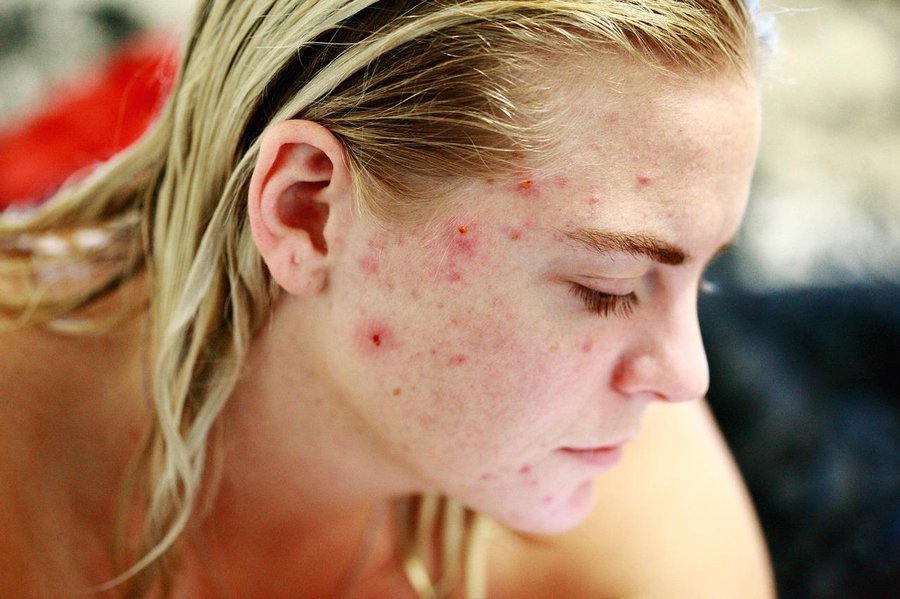There are many causes that can lead to acne, but there is one that only affects women, menstrual acne, or acne due to the period. In addition to the usual symptoms ranging from headache to cramps, through mood swings, acne is a problem that affects many women month after month and announces the early arrival of your period. And although acne is always uncomfortable and sometimes it is impossible to avoid suffering it, we show you what to do so that the arrival of your cycle does not become a martyrdom for your skin.

Causes
There are several possible causes of this during your PMS, but in most cases is due to the hormonal change of your cycle, we must remember that on average, the menstrual cycle lasts 28 days, during which your body does not stop suffering changes and fluctuations in hormone levels. These changes are what in some women promote the appearance of spots and pimples on the face, starting to be noticed between 7 and 10 days before the start of bleeding.
How to treat it
First of all, maintain good hygiene of the face, it is recommended to wash it at least twice a day with specialized products for oily skin. Also, keep your skin well hydrated and avoid products that can close your pores, since these produce the worsening of the symptoms. If you present very serious acne, it is recommended to visit a specialist who will advise you with an effective treatment for your specific case.
/GettyImages-1155362661-fd7337b6f7eb462d844b905000bbd24c.jpg)
Also read: How Food Can Help You Combat Skin Aging
How to prevent its appearance
Some people recommend changing birth control pills to reduce the appearance of acne due to your menstrual cycle. To do this, it is recommended that you consult a gynecologist who will recommend the appropriate ones for you. Another option is to improve your diet and lose weight, since being overweight is a determining factor in the decrease of sex hormone-binding globulin and also in the increase of testosterone, both factors
Translated and adapted by Limepedia staff.
Sources: Facilisimo







